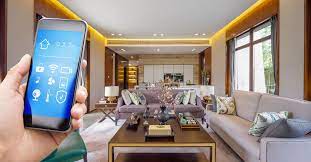Home Automation
Imagine walking into your home, and with a simple voice command, the lights adjust to your preferred brightness, the thermostat sets itself to the perfect temperature, and your favorite music starts playing. This futuristic vision is now a reality, thanks to the wonders of home automation. In this article, we’ll explore the various aspects of home automation, from its benefits and popular devices to challenges, case studies, and its future impact.
Home automation, also known as smart home technology, involves the use of intelligent devices and systems to control various aspects of your home. From lighting and heating to security and entertainment, these systems offer convenience, efficiency, and enhanced living experiences. The surge in popularity of smart homes is indicative of the desire for more streamlined, connected living spaces.
Benefits of Home Automation
Convenience and Comfort
One of the primary advantages of home automation is the unparalleled convenience it brings to homeowners. With a smartphone or voice-activated device, you can control your home’s functions from anywhere. Imagine being able to adjust your thermostat on a hot day before even stepping through the door or turning off lights you forgot about from the comfort of your bed.
Smart Devices for Home Automation
Smart Thermostats
Smart thermostats revolutionize climate control by learning your preferences and adjusting temperatures accordingly. This not only ensures a comfortable environment but also contributes to energy efficiency, saving you money in the long run.
Intelligent Lighting Systems
Gone are the days of manually switching lights on and off. With intelligent lighting systems, you can create customized settings, schedule lighting changes, and even control them remotely. This not only enhances ambiance but also promotes energy conservation.
Automated Door Locks
Enhance your home security with automated door locks. These devices offer features such as remote locking and unlocking, access logs, and integration with other security systems, providing peace of mind whether you’re at home or away.
Voice-Activated Assistants
Imagine controlling various aspects of your home with simple voice commands. Voice-activated assistants like Amazon’s Alexa or Google Assistant make this a reality, adding a layer of convenience to your daily life.
Integration of Home Automation Systems
Centralized Control Hubs
Centralized control hubs act as the brain of your smart home, allowing you to manage multiple devices from a single interface. Whether it’s adjusting your thermostat, checking security cameras, or turning off lights, a centralized hub simplifies the user experience.
Interconnected Devices
For optimal functionality, smart devices should seamlessly communicate with each other. This interconnectedness ensures that actions in one part of your home trigger appropriate responses in other areas, creating a cohesive and responsive environment.
Compatibility Issues and Solutions
While the idea of a smart home is appealing, compatibility issues can arise when integrating different devices. Choosing products from the same ecosystem or using platforms that support multiple brands can help mitigate these challenges.
Cost Considerations for Home Automation
Initial Setup Costs
Investing in home automation may require an initial financial commitment. However, as technology advances and more products enter the market, prices are becoming increasingly competitive, making it more accessible to a broader range of homeowners.
Long-Term Savings
Despite the initial costs, home automation can lead to significant long-term savings. Energy-efficient devices reduce utility bills, and the convenience of automated systems can enhance the overall efficiency of your home.
Conclusion
Home automation is not just a modern luxury but a transformative way of living. The convenience, energy efficiency, and security enhancements make it a worthwhile investment. As technology continues to evolve, we can expect even more innovative features, making smart homes an integral part of our daily lives.
Frequently Asked Questions (FAQs)
- Is home automation only for tech-savvy individuals?
No, many systems are designed to be user-friendly, and there are professional installation options for those less comfortable with technology.
- Are there privacy concerns with home automation?
While privacy is a consideration, most reputable systems prioritize data protection, and users can customize privacy settings.
- Can I integrate existing devices into a home automation system?
Yes, many systems offer compatibility with a wide range of devices, allowing for seamless integration.
- How does home automation contribute to energy conservation?
Smart devices optimize energy usage by adapting to user behavior, leading to reduced energy consumption.
- Is it possible to start with a small home automation setup and expand later?
Absolutely, many users begin with a few key devices and gradually expand their smart home capabilities over time.

